Basic Sciences
The basic sciences serve as a foundation for almost everything that CALS does, and provide the fundamental knowledge that will be needed to support the goals identified in the CALS strategic plan. For example:
- Genome-wide approaches.
- Understanding the basic biology of microbes.
- Biochemistry and microbiology of energy generation.
- Chemical and structural biology.
- Ecosystem function.
- Food safety and nutrition.
Bioenergy and Bioproducts
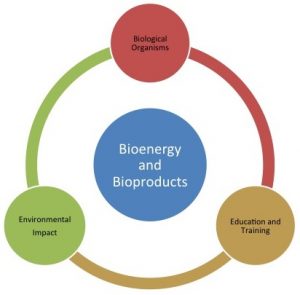
Energy and products derived from living systems have the potential to reduce global dependence on fossil fuels while enhancing ecological resilience and economic vitality. Realizing this potential requires fundamental scientific breakthroughs, technical and social innovation and thoughtful application and monitoring so that the new fuels and bioproducts are effective and affordable. CALS activities include converting biomass to fuels and chemicals; generating energy from manure and other wastes while also meeting needs for disposal and management of nutrients; and supporting decision-making based on understanding the social, economic and environmental impacts of energy systems.
Changing Climate
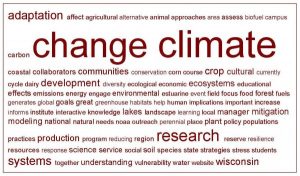
Impacts of increasingly erratic weather patterns and the general warming of the climate are expected to affect families, businesses, communities and ecosystems in complex ways and with unclear outcomes. Flooding, drought and unseasonable temperatures affect agricultural production, wildlife migration patterns and species distribution. In wild places and managed ecosystems alike, climate change introduces stressors and allows pests and pathogens to invade new territories, affecting plants, animals and humans. We seek to advance understanding of the causes of climate change and its many impacts as well as develop strategies—from new breeds and on-farm innovations to insect and pathogen control strategies—that are sufficiently robust to adapt to and potentially mitigate extreme weather conditions.
Economic and Community Development
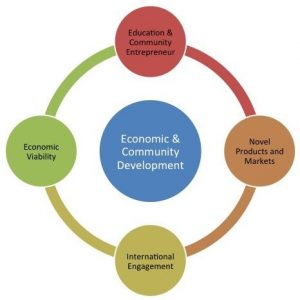
In Wisconsin and around the world, local economies are increasingly influenced by global markets. This brings both challenges and opportunities that affect people, businesses, communities and the environment. Building healthy local economies and prosperous, stable communities requires understanding their internal dynamics and the nature of their interactions with national and global systems. That understanding is the foundation for good policy advice at community, state, national and international levels. CALS activities help inform decision-making by producers, entrepreneurs, consumers and policy makers to enhance the well-being of families and businesses; provide information to help communities cope with change and advance social and economic development; and spur social and economic innovations that benefit individuals and communities.
Food Systems
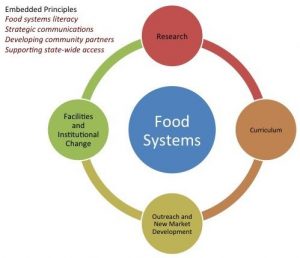
A “food system” includes activities from production to consumption, from farm to table, at local to global scales. The challenge is to develop effective food systems that ensure a safe, secure, sustainable, affordable, accessible and nutritious food supply for all, while fostering and building strong communities and social justice in the process. Work in CALS addresses challenges across the spectrum of issues in production, distribution and consumption, including local and urban food systems, economic development and sustainable ecosystems.
Health and Wellness
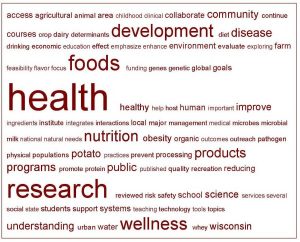
Through basic and applied research, CALS contributes to the promotion of health and the
reduction of disease in humans, animals and plants. The obesity epidemic, which exacerbates many common diseases, has created an urgent need to better understand its causes and prevention. CALS brings diverse strengths to this endeavor, including expertise in metabolomics, functional foods and nutraceuticals. Moreover, CALS’ efforts include improving animal health and well-being, which contribute not only to a safe and healthy food supply but also can directly impact human health via animal-vectored diseases.
Healthy Ecosystems
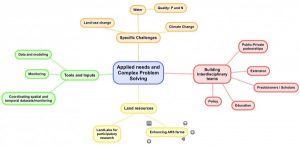
Our landscapes provide many services, from food, fiber and fuel to clean water and air, from flood management and wildlife habitat to recreation and aesthetics. Competing demands on natural resources, made more intense by growing populations, make it a challenge to manage landscapes in ways that balance these services. Combining understanding of how these ecosystems respond to land management with inventive technologies and approaches helps foster innovative policies and economic opportunities. CALS efforts include designing and managing landscapes in ways that help provide clean water and air, mitigate climate change and promote biodiversity while building communities and offering economic gain.
